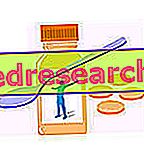Definition
Among sleep disorders we cannot forget hypersomnia, a pseudo-pathological phenomenon in contrast to that of insomnia. The term "hypersomnia" outlines a disorder known to most as "excess sleepiness" during the day, sometimes so severe as to hinder even normal daily activities, social and work.
- Hypersomnia should not be confused with narcolepsy: this latter condition leads to sudden drowsiness, associated with loss of muscular control.
Causes
We speak of "idiopathic hypersomnia" when the cause of origin is not identifiable; in general, the most involved etiological factors are: alcoholism, sleep apnea, drugs and certain medications, atypical depression, hypothyroidism, head injuries, particular diseases, psychosis, restless legs syndrome.
Symptoms
The symptoms that characterize hypersomnia tend to appear already at a young age (adolescence), only rarely begin for the first time in adulthood. The most recurrent signs in hypersomnia include: anxiety, asthenia, panic attacks, increased sleep duration (14-18 hours a day), morning headache, confusion and disorientation, constant need for sleep, difficulty waking up after a long rest night, sexual difficulties, loss of appetite, restlessness.
Information on hypersomnia - drugs to treat hypersomnia is not intended to replace the direct relationship between health professional and patient. Always consult your doctor and / or specialist before taking Hypersomnia - Hypersomnia Cures.
drugs
Even hypersomnia can be considered a disease in all respects, especially when it manifests itself with symptoms that weigh heavily on social relations and work activities of the subject who is affected. Unfortunately, hypersomnia tends to be underestimated, therefore medical consultation is postponed; this attitude is wrong and not very intelligent, on the other hand it is good to recognize the disorder from the first symptoms, in order to be able to narrow the healing time.
Clearly, daytime sleepiness is not always synonymous with hypersomnia: occasional phenomena of sleepiness during the day should not be treated by the doctor; the advice of the specialist is essential if the typical symptoms of hypersomnia are excessively frequent and debilitating for the daily activities of the subject.
In general, patients suffering from hypersomnia tend to fall asleep in much shorter times than those in "healthy dormitories": this factor, apparently negligible, is very important for medical diagnosis.
However, before taking drugs, the hypersomnia patient should put in place some simple rules, useful for improving the quality of sleep at night:
- Avoid working at night
- Don't drink alcohol
- Do not take medicines that could favor the disorder (when not essential)
- Go to sleep around the same time
Individuals with hypersomnia should avoid some work (eg those activities where the use of dangerous machinery or tools is envisaged), in order not to harm themselves and others.
- Amphetamine and Destroamfetamina (eg DextroStat, Adderall, Dexedrine): s belong to the class of sympathomimetic amines, substances that stimulate the central nervous system. It is recommended to start therapy with an oral dose of 10 mg taken per morning in the morning. Possibly, it is possible to correct the dosage for the maintenance phase, increasing by 10 mg every 7 days (not to exceed 60 mg per day), in addition to always dividing the dosages. This dose is generally considered for the treatment of narcolepsy. Lower dosages are indicated to treat moderate to medium-sized hypersomnia. The drug is also available as slow release capsules and oral solution. Consult your doctor.
- Methylphenidate (eg Ritalin): the drug is an analogue of amphetamines, used in therapy to treat sleep disorders such as hypersomnia and narcolepsy, as well as being widely used to cure attention and concentration disorders. Also this active ingredient, therefore, is a CNS stimulant. Indicatively, the recommended dose for the treatment of hypersomnia - varying according to the severity of the disorder - is 10 mg, to be taken orally, 2-3 times a day, preferably 30-45 minutes before breakfast and lunch. A possible third dose can be taken 2-4 hours after lunch, when necessary. The dose can be increased by 5-10 mg for the maintenance period. Do not exceed 60 mg a day. Consult your doctor before taking this medicine.
- Modafinil (eg. Provigil): the drug is a stimulant, indicated for the treatment of sleep disorders such as hypersomnia and narcolepsy; the active principle acts by promoting the release of neurotransmitters (monoamines), and raising the levels of histamine in the hypothalamus. The drug should be taken at a dose ranging from 150 to 250 mg, once a day, preferably in the morning. The dose varies according to the severity of the disorder: it is minimal in cases of mild hypersomnia and is higher when the disorder degenerates into narcolepsy in all respects. However, the effective dose, even for mild forms of drowsiness, should not fall below 150 mg.
- Caffeine (eg. Nymusa, Peyona): caffeine is particularly suitable for overcoming sleepiness in the context of hypersomnia. The drug is available both in the form of drops and as tablets and, in addition to being used in therapy for the treatment of hypersomnia and sleepiness, it is also used to treat primary apnea in newborns. In general, it is recommended to take a dose of drug varying from 100 to 200 mg, every 3 or maximum 4 hours. Its use is reserved only for those occasional forms of hypersomnia.
It is also possible to take food supplements with a stimulating action, ie formulated with exciting substances; coffee (caffeine), guarana (guaranina) and cola (example Thermo Stack 2) cannot be missed among the plant extracts that are most suitable for drowsiness and mild hypersomnia.



